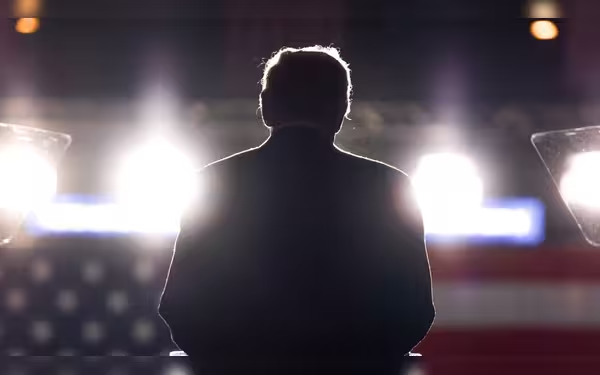Saturday, November 23, 2024 06:50 PM
Trump's Game Theory: Predictions for International Relations
- Trump's unpredictability impacts global diplomacy.
- Potential shifts in US support for Taiwan.
- Game theory reveals dynamics of Trump-Putin-Xi interactions.
 Image Credits: asiatimes
Image Credits: asiatimesExplore how game theory predicts Trump's actions in global diplomacy and the implications for Ukraine, Taiwan, and relations with China and Russia.
Donald Trump’s recent victory in the US presidential elections has sparked a wave of uncertainty around the globe. Many are left wondering what his next term will entail, especially regarding international policies that he has previously threatened to change dramatically. One of the most pressing concerns is how the Trump administration might approach the ongoing war in Ukraine. Trump has boldly claimed that he could end the conflict in just one day, but the implications of such a statement are far-reaching.
If any peace deal or negotiation is perceived by Russian President Vladimir Putin as a victory, it could raise alarms among neighboring countries. These nations fear that a perceived success for Russia might embolden it to pursue further military aggression in the region. On the other hand, if Trump decides to withdraw the United States' long-standing support for Taiwan, it could provoke China into taking aggressive action. China views Taiwan as a breakaway province and has long desired its reunification with the mainland. Historically, US support for Taiwan has acted as a deterrent against Chinese aggression, but this dynamic could shift dramatically under Trump’s leadership.
Chinese President Xi Jinping is keen on solidifying his legacy as the leader who unified China, a feat that eluded Mao Zedong after the civil war. In recent years, Xi has intensified pressure on Taiwan, indicating a desire to escalate his efforts. However, both Xi and Putin face a significant uncertainty regarding Trump’s actions. This unpredictability can be understood through the lens of game theory, particularly the concepts of the “chicken game” and the “hawk-dove” game, which illustrate the dynamics of conflict between two parties.
In essence, game theory teaches us that the actions of one player can significantly influence the decisions of another. In this context, Trump’s unpredictable nature could lead to unexpected outcomes in international relations. While he may have made bold claims, the reality of diplomacy often requires a more nuanced approach. As the world watches closely, it remains to be seen how Trump will navigate these complex issues and what strategies he will ultimately employ.
The future of international relations under Trump’s leadership is shrouded in uncertainty. The stakes are high, and the potential consequences of his decisions could reverberate across the globe. As citizens and leaders alike await his next moves, it is crucial to remember that diplomacy is rarely straightforward. The interplay of power, perception, and strategy will shape the course of events in the coming years, and understanding these dynamics will be essential for anyone looking to grasp the complexities of global politics.













